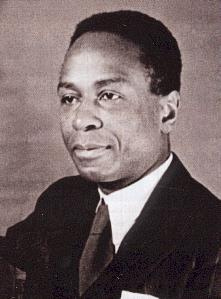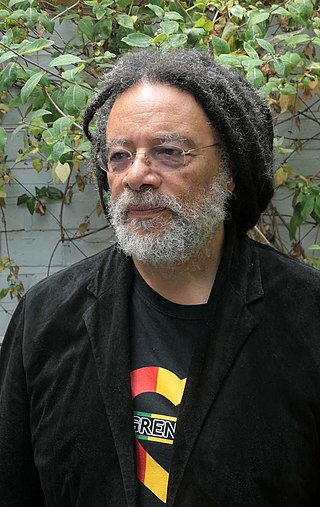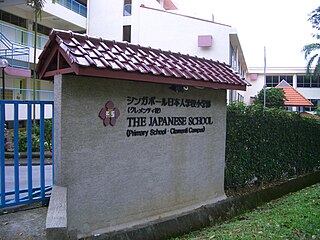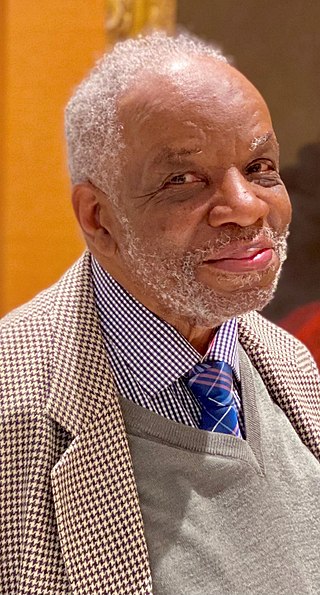
George Padmore, born Malcolm Ivan Meredith Nurse, was a leading Pan-Africanist, journalist, and author. He left his native Trinidad in 1924 to study medicine in the United States, where he also joined the Communist Party.

Paul Gilroy is an English sociologist and cultural studies scholar who is the founding Director of the Sarah Parker Remond Centre for the Study of Race and Racism at University College, London (UCL). Gilroy is the 2019 winner of the €660,000 Holberg Prize, for "his outstanding contributions to a number of academic fields, including cultural studies, critical race studies, sociology, history, anthropology and African-American studies".
John La Rose was a political and cultural activist, poet, writer, publisher, founder in 1966 of New Beacon Books, the first specialist Caribbean publishing company in Britain, and subsequently Chairman of the George Padmore Institute. He was originally from Trinidad and Tobago but was involved in the struggle for political independence and cultural and social change in the Caribbean in the 1940s and 1950s and later in Britain, the rest of Europe and the Third World.

Nihonjin gakkō, also called Japanese school, is a full-day school outside Japan intended primarily for Japanese citizens living abroad. It is an expatriate school designed for children whose parents are working on diplomatic, business, or education missions overseas and have plans to repatriate to Japan.
This is a list of topics related to racism:
Oppositional culture, also known as the "blocked opportunities framework" or the "caste theory of education", is a term most commonly used in studying the sociology of education to explain racial disparities in educational achievement, particularly between white and black Americans. However, the term refers to any subculture's rejection of conformity to prevailing norms and values, not just nonconformity within the educational system. Thus many criminal gangs and religious cults could also be considered oppositional cultures.
Internalized racism is a form of internalized oppression, defined by sociologist Karen D. Pyke as the "internalization of racial oppression by the racially subordinated." In her study The Psychology of Racism, Robin Nicole Johnson emphasizes that internalized racism involves both "conscious and unconscious acceptance of a racial hierarchy in which whites are consistently ranked above people of color." These definitions encompass a wide range of instances, including, but not limited to, belief in negative stereotypes, adaptations to white cultural standards, and thinking that supports the status quo.
Research shows many health disparities among different racial and ethnic groups in the United States. Different outcomes in mental and physical health exist between all census-recognized racial groups, but these differences stem from different historical and current factors, including genetics, socioeconomic factors, and racism. Research has demonstrated that numerous health care professionals show implicit bias in the way that they treat patients. Certain diseases have a higher prevalence among specific racial groups, and life expectancy also varies across groups.
The George Padmore Institute (GPI), founded in 1991 in Stroud Green Road, North London, by John La Rose (1927–2006) and a group of political and cultural activists connected to New Beacon Books, is an archive, library, educational resource and research centre that houses "materials relating to the black community of Caribbean, African and Asian descent in Britain and continental Europe". The Institute also hosts talks and readings, as well as other educational and cultural activities.
Pearl Connor-Mogotsi, née Nunez, was a Trinidadian-born theatrical and literary agent, actress and cultural activist, who was a pioneering campaigner for the recognition and promotion of African Caribbean arts. In the UK, in the 1950s, she was the first agent to represent black and other minority ethnic actors, writers and film-makers, and during the early 1960s was instrumental in setting up one of Britain's first black theatre companies, the Negro Theatre Workshop. In the words of John La Rose, who delivered a eulogy at her funeral on 26 February 2005: "Pearl Connor-Mogotsi was pivotal in the effort to remake the landscape for innovation and for the inclusion of African, Caribbean and Asian artists in shaping a new vision of consciousness for art and society."
The Center on Race and Social Problems (CRSP) at the University of Pittsburgh School of Social Work was designed to address societal problems through research, intervention, and education. It is the first center of its kind to be housed in a school of social work and it is unique in both its multidisciplinary approach and its multiracial focus. The mission of CRSP is to conduct solution-oriented social science research on race, ethnicity, and color and their influence on the quality of life for Americans in the 21st century. CRSP has identified seven major areas of race-related social problems: economic disparities; educational disparities; interracial group relations; mental health practices and outcomes; youth, families, and the elderly; criminal justice; and health.

Japanese nationals residing in London, in common with members of the wider Japanese community in the United Kingdom, include business professionals and their dependents on limited term employment visas, trainees, young people participating in the UK government sponsored Youth Mobility Scheme, students, as well as Japanese emigrants and their descendants who have settled in the city.

Hoshū jugyō kō (補習授業校), or hoshūkō (補習校) are supplementary Japanese schools located in foreign countries for students living abroad with their families. Hoshū jugyō kō educate Japanese-born children who attend local day schools. They generally operate on weekends, after school, and other times not during the hours of operation of the day schools.

Augustine John is a Grenadian-born writer, education campaigner, consultant, lecturer and researcher, who moved to the UK in 1964. He has worked in the fields of education policy, management and international development. As a social analyst he specialises in social audits, change management, policy formulation and review, and programme evaluation and development. Since the 1960s he has been active in issues of education and schooling in Britain's inner cities such as Manchester, Birmingham and London, and was the first black Director of Education and Leisure Services in Britain. He has also worked in a number of university settings, including as visiting Faculty Professor of Education at the University of Strathclyde in Glasgow, as an associate professor of education and honorary fellow of the London Centre for Leadership in Learning at the UCL Institute of Education, University of London, and visiting professor at Coventry University. A respected public speaker and media commentator, he works internationally as an executive coach and a management and social investment consultant.
Homophobia in ethnic minority communities is any negative prejudice or form of discrimination in ethnic minority communities worldwide towards people who identify as–or are perceived as being–lesbian, gay, bisexual or transgender (LGBT), known as homophobia. This may be expressed as antipathy, contempt, prejudice, aversion, hatred, irrational fear, and is sometimes related to religious beliefs. While religion can have a positive function in many LGB Black and Minority Ethnic (BME) communities, it can also play a role in supporting homophobia.
Bogle-L'Ouverture Publications (BLP) is a radical London-based publishing company founded by Guyanese activists Jessica Huntley and Eric Huntley in 1969, when its first title, Walter Rodney's The Groundings With My Brothers, was published. Named in honour of two outstanding liberation fighters in Caribbean history, Toussaint L'Ouverture and Paul Bogle, the company began operating during a period in the UK when "books by Black authors or written with a sympathetic view of Black people's history and culture were rare in mainstream bookshops in the UK." Alongside New Beacon Books and Allison & Busby, BLP was one of the first black-owned independent publishing companies in the UK. BLP has been described as "a small, unorthodox, self-financing venture that brought a radical perspective to non-fiction, fiction, poetry and children's books."
The National Association of Black Supplementary Schools (NABSS) is a resource, information and advice centre for supplementary schools aimed at Black children and parents in the United Kingdom.

Aggrey Washington Burke is a British retired psychiatrist and academic, born in Jamaica, who spent the majority of his medical career at St George's Hospital in London, UK, specialising in transcultural psychiatry and writing literature on changing attitudes towards black people and mental health. He has carried out extensive research on racism and mental illness and is the first black consultant psychiatrist appointed by Britain's National Health Service (NHS).
Waveney Bushell is a Guyanese-born teacher, activist and "arguably the first Black educational psychologist in the UK". She is most notable for her role in exposing racism and inequality in the British educational system.
Kath Locke (1928–1992) was a mixed-race British community leader and political activist based in Manchester. Active in Moss Side community politics, she helped to establish the George Jackson House for homeless children in 1973. In 1980, Kath Locke was a co-founder of the Abasindi Co-operative, a community organisation run by Black women. During the 1980s, the Abasindi Co-operative was a hub for many educational and cultural programs for the local African and Afro-Caribbean community, operating out of the Moss Side People's Centre. The 1995 documentary film We Are Born to Survive tells the story of Kath Locke's political life. The Kath Locke Centre in Moss Side is named after her.






